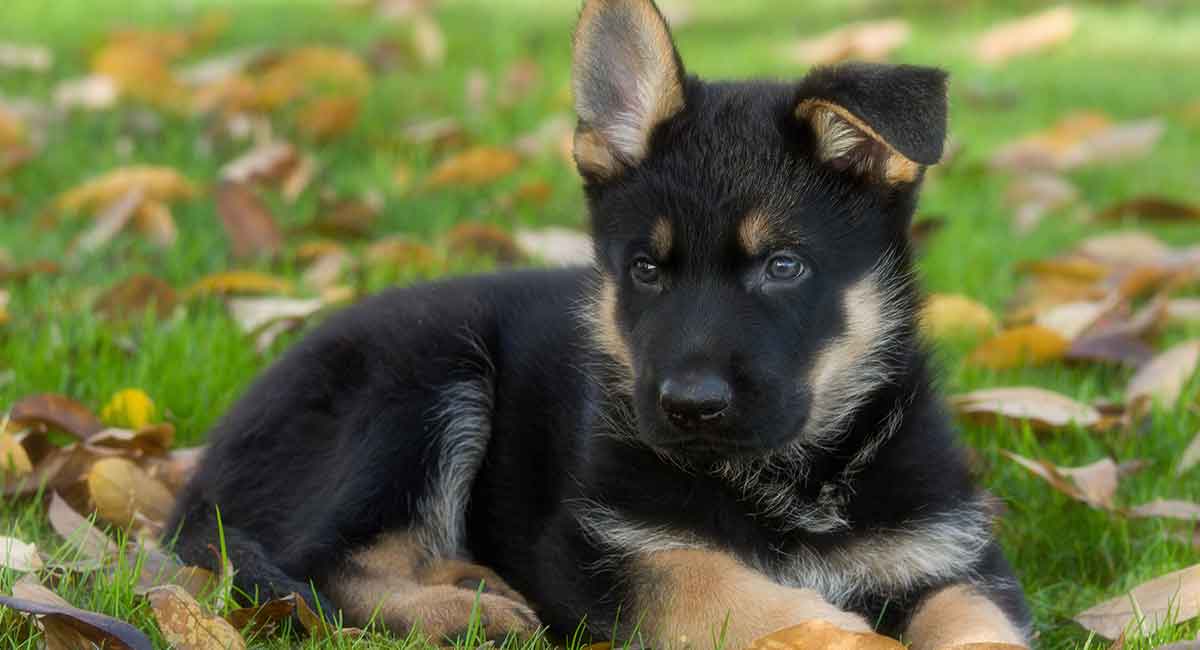
It is a loyal, athletic, and intelligent breed. These qualities have made it a popular service dog, as well as loved family pet.
To help you decide if this iconic dog is right for you, we’ve got everything you need to know right here in one place.
What’s In This Guide
- The German Shepherd At A Glance
- In-depth Breed Review
- German Shepherd Training And Care
- Pros And Cons Of Getting A German Shepherd
German Shepherd FAQs
The German Shepherd is well known, but there are some very mixed perceptions of him.
The most common questions we hear about German Shepherd dogs include
- Is a German Shepherd a good family dog?
- How much should German Shepherd puppies cost?
- Do German Shepherds attack their owners?
- Are German Shepherds affectionate?
In this article we have an honest, detailed review of the German Shepherd breed.
We’ll include their characteristics, temperament, suitability as pets, and the things you need to provide for them as an owner.
It’s time to find out what we should truly expect from a German Shepherd!
Breed At A Glance
- Popularity: 2nd most popular dog in the US according to the American Kennel Club
- Purpose: Herding
- Weigh: 50-90 lb
- Temperament: Brave, loyal, talented multi-purpose dog
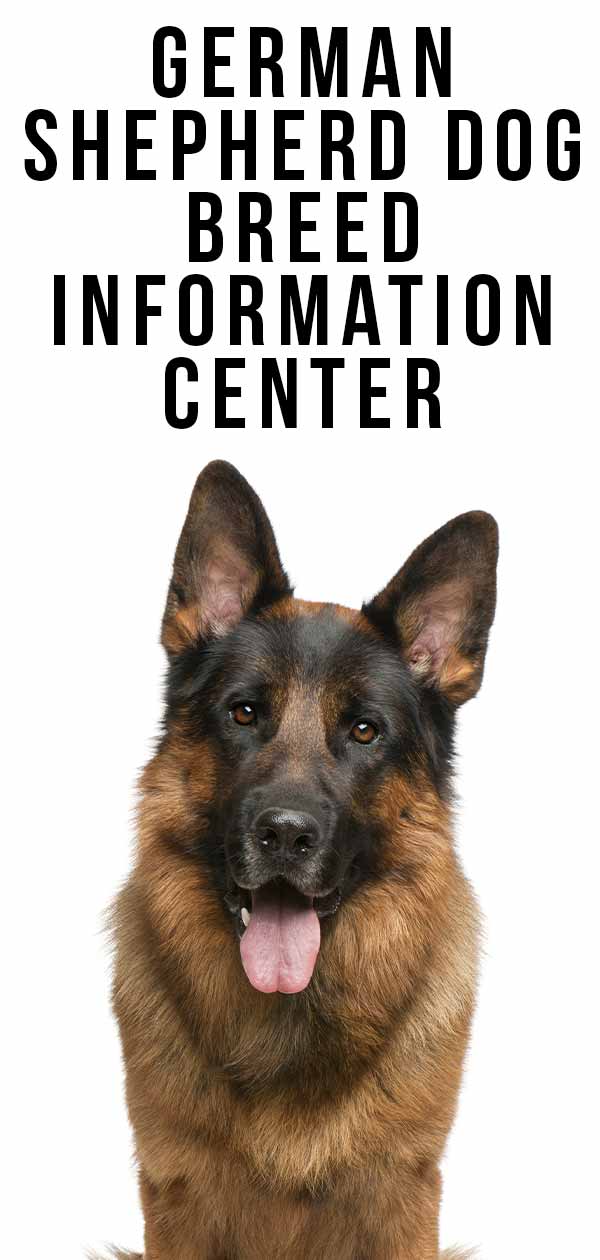
And a LOT of people love them! Which is why they’re seen as one of the world’s cutest breeds!
They are an enduring favorite as family pets, working guard dogs and as trained police dogs.
They are also highly regarded in the show ring.
German Shepherd Breed Review: Contents
- History and original purpose of the German Shepherd
- Fun facts about German Shepherds
- German Shepherd appearance
- German Shepherd temperament
- Training and exercising your German Shepherd
- German Shepherd health and care
- Do German Shepherd dogs make good family pets?
- Rescuing a German Shepherd
- Finding a German Shepherd puppy
- Raising a German Shepherd puppy
- Popular German Shepherd breed mixes
- German Shepherd products and accessories
First, let’s take a look at the breed’s past, to help us understand his modern persona a little better.
History and Original Purpose of the German Shepherd
This dog was originally bred for herding and guarding livestock in all weathers.
They were founded in the early 1890’s, when one Captain Max von Stephanitz set out to breed the ultimate all-purpose herding dog.
His original intention was for this new line to continue working as herding dogs.
But as the years passed and times changed, his goals transferred to working pastimes – namely in the police and the military.
To fulfill his job the GSD was intelligent, protective, co-operative and bold.
He also needed to have a high level of fitness and be structurally sound.
The Roles of the German Shepherd
Today this dog’s nature is put to good use in a lot of important roles.
They are easy to train, co-operative with their human handlers, and very active dogs too.
This makes them perfect for many roles, including guide dog work, protection work, search and rescue, and police/military work.
The photo shown here portrays a GSD working as a security guard dog in the 1950’s (courtesy of Bundesarchiv).
Fun Facts About German Shepherds
- Batman’s dog Ace the Bathound was a GSD.
- They were also among the first canine film and television stars.
- For example, a GSD was the eponymous hero of the Canadian TV series The Littlest Hobo.
- Famous Shepherd owners include Claudia Schiffer, Reese Witherspoon, Tom Hanks and Ben Affleck.
- More GSDs have won the Dickin Medal for Gallantry in military conflict than any other dog breed.
Next, let’s find out how to recognize one of these notable hounds.
German Shepherd Appearance
These are medium to large dogs.
They are usually around 24 inches tall, with females on average a little shorter and males slightly taller.
You can expect them to weigh in the region of 80 to 90 pounds.
They have a thick double coat in black, sable or bi-colored, with a fawn or grey undercoat. Along haired German Shepherd will have the same thick coat, but you guessed it, longer hair!
The outer coat will be thick, with hair varying from straight to wavy.
The Black German Shepherd
The solid black variety is an increasingly popular choice.
We’ve even seen it described as though it were a different breed.
It isn’t though, and black is simply another color variety in this gorgeous breed.
As is pure snowy white!
You may not see your German Shepherd’s final adult coat color until he is fully grown, as the outer coat takes longer to develop.
White German shepherd
White is always an interesting color to see in a dog. Usually white is a gene expression that can sometimes mean health defects like deafness.
In fact, white isn’t even a coat color. It is what we see when the genes mute all other colors from appearing.
In the case of this breed, white coats have been present since the breed’s beginning.
Blue German shepherd
Blue GSDs are the result of more gene trickery. When you see a blue GSD, you are seeing the usual black color having been muted to the more blueish color.
You can read all about German Shepherd coat colors here. here.
German Shepherd Shape
These dogs should have a similar shape to that of their wolf-like ancestors.
However this is where some changes to the breed have crept in.
The Kennel Club state in the breed standard for the German Shepherd that “working ability [is] never sacrificed for mere beauty’.
However, this breed’s show lines of the last 50 years or so have been gradually changing shape.
Specifically, the slant of their backs.
Show dogs have been increasingly bred to give a ‘banana’ back shape.
And as we shall see in the health section below, it is having seriously unpleasant health implications.
German Shepherd temperament
This is a powerful and strong dog.
He is attentive, alert, resilient and tireless. He is also very intelligent and highly trainable, as a working dog or as a family pet.
This is a breed that can be very bold and confident when properly socialized.
Your average shepherd is also a fairly calm dog. Although playful at times he usually matures into a level headed member of the family.
He may be aloof with strangers, but he will bond strongly with you and his immediate human family. This deeply rooted sense of loyalty often comes with strong guarding instincts.
Whilst this may appeal to you as a watchdog, remember that a dog cannot distinguish between a welcome friend and a trespasser.
German Shepherds and your family
If your dog lives with your family, you will want him to be friendly and confident around anyone that he doesn’t know.
So it is important when you bring a German Shepherd puppy home to remember that these instincts need to be properly managed as he grows.
These dogs can show signs of misplaced protectiveness to their families too if not properly exposed to social interactions.
This is why socializing your new puppy to every potential scenario in readiness for his adulthood is so important.
Training and exercising your German Shepherd
You might already know that these dogs are born to be on the go.
They crave action, and their bodies and brains need a work out every single day.
So training and exercise will make up a significant part of your life together.
Let’s look closer at the importance of socialization, ongoing training, and daily exercise in turn.
Socializing a German Shepherd Puppy
Proper socialization is vital for your young German Shepherd puppy.
Without it, his strong guarding instincts will make him wary of strangers both in the home and outdoors.
The best way to reduce this and teach him to welcome your friends when they visit, is to really dedicate yourself to his socialization when he comes home.
Give him a week to settle in (perhaps get started on potty training), and then get the visitors around.
Make sure you see a range of different people, of both sexes, from the very young to the very old.
Variety is Key
Although he won’t yet be vaccinated, take him in your arms to a variety of places that you will want him to be comfortable with as he grows.
The pet shop, the bus station, the railway, busy town centers, and dog friendly cafes and bars. These are all great places to really flood him with a sea of new faces, sights and sounds.
Make people coming and going an entirely normal experience for him at this point, and he will be far less cautious as he ages.
Once he has had his second jabs at around 12 weeks old, you will be able to take him out on foot to all of these same areas to experience them from the ground too.
Check out these 12 great places to socialize your puppy if you are looking for some ideas.
This might seem like a lot of effort for a few weeks, but it will be more than worth your while.
An under-socialized dog won’t make a better guard dog, he simply has a greater potential to be nervous, miserable and even dangerous. A well-socialized puppy and adolescent will grow into a friendly pet and a safe canine citizen.
German Shepherd Training
As he grows up, training is a vital way for your German Shepherd dog to use his body and mind productively.
Games with a training element keep him both fit and happy, as well as relaxed when he is at home.
At The Happy Puppy Site we firmly endorse modern, positive training methods.
These are even more beneficial when working with a breed predisposed to guarding, like the German Shepherd.
These pups learn by experience that training with his human friends is a fun and enjoyable, rewarding experience – not something to be feared or resented.
Training is Key too!
Training is an important part of GSD ownership as they are big dogs, who can potentially get themselves into trouble if they are left to their own devices.
Your puppy will need to learn not to knock people over, and to walk on a loose lead.
Effective training and management will ensure that your GSD puppy is safely under control, and happily kept occupied and stimulated in a positive way.
German Shepherd Exercise
These dogs are active and intelligent and need plenty of physical and mental stimulation.
This means that there are a wealth of fun activities that you and your puppy will be able to take part in as he grows.
They will need either a couple of hour long walks each day, or a shorter amount of time with much higher paced exercise.
For example running, agility, complex retrieving or swimming.
Agility is great for exercising the body and allowing the dog to work co-operatively with you.
Other Types of Work
Pastoral work can be harder to find, but works well with the German Shepherd’s natural instincts.
Scentwork, such as search and rescue, can be very rewarding for you both and is rapidly rising in popularity for fun as well as working purposes.
Basic obedience classes and advanced obedience training are highly suited to these focused and trainable dogs too.
They give the advantages of training and exercise in one big satisfying hit!
German Shepherd Health and Care
Once you are happy that a German Shepherd puppy is the right choice for your family, you need to learn a few things. There are quite a few potential health issues that could impact your pup as he grows and how best to avoid them.
As for all purebred dogs, there are some hereditary diseases which occur more frequently among this breed than in the canine population at large.
This is because pedigree dog breeding imposes, by definition, a degree of inbreeding.In fact all of today’s German Shepherds can trace their lineage back to just one dog.
You need to be aware of the common health problems of this breed when you choose a breeder for your puppy.
Genetic Diseases in German Shepherds
Hip and elbow dysplasia
Hip dysplasia and elbow dysplasia are common ailments of large dog breeds.
The bone at the hip or elbow joint is malformed, which leads to painful arthritis and lameness.
Make sure your puppy’s parents have better than average hip scores and elbow scores to reduce the risks of your pup suffering from these joint problems.
Osteochondritis dissecans
Another issue which can affect a German Shepherd dog’s joints is osteochondritis dissecans (OCD).
OCD is abnormal growth in the cartilage of the dog’s joints. To avoid OCD in your pup as he grows, find a breeder who has deliberately mated lines without the tendency to develop this problem.
You can find out more about OCD in GSDs at this useful website.
Pancreatic Acinar Atrophy
This disorder of the pancreas affects around 1 in 5 German Shepherd dogs.
It prevents the small intestine from absorbing fats properly, so that young dogs fail to thrive and grow normally.
Although we know it is a hereditary genetic disorder, there isn’t a test for carrier dogs yet.
Instead, a good breeder will keep records of cases across their dogs’ family trees, and avoid breeding those who might be carriers.
Panosteitis
Around 10% of young GSDs experience intermittent lameness caused by panosteitis, which affects developing bones.
Dogs grow out of the condition when their skeleton matures.
Degenerative myelopathy
GSDs are also known to potentially be affected by degenerative myelopathy.
Myelopathy is a spinal cord disease which stops the dog from using his back legs and can result in the dog being euthanized.
Other Conditions
German Shepherd are more than averagely prone to allergies.
The most common allergies are dermatitis, inhalant allergies and food allergies. These may or may not have a genetic component, so it’s worth asking if either of a puppy’s parents have a history of allergies.
German Shepherd puppies are also vulnerable to haemophilia.
Bloat in German Shepherd Dogs
Finally, like all deep-chested breeds, German Shepherds are vulnerable to bloat.
Bloat happens when a dog’s stomach twists back on itself – usually as a result of gulping food too fast.
Only urgent surgery can fix the problem, and approximately 15% of GSD deaths are a result of bloat.
There is no test for a risk of bloat – you simply need to be aware of the risk and manage it.
German Shepherd Back Problems
It probably feels like we’ve already talked about health a lot.
However, the main issue that we need to focus on with German Shepherds is regarding their conformation.
Specifically their backs.
In recent years the GSD has increasingly become a divided breed, between those bred for practical purposes and those bred to display certain physical characteristics in the show ring.
The appearance of the GSD that we see today in the show ring is very different from that which was around in the 1950s.
In particular, modern breeders have focused on creating a steeply sloping top line in their dogs, along with an extreme angulation in the back legs.
German Shepherd Toplines
Compare the two GSDs shown in this picture.
You can see the distinct difference in their top line. The first is almost level, the second is at a rather steep angle.
How uncomfortable this roached back and angled legs is for the dog is debatable. It certainly looks uncomfortable, and is something that many vets are concerned about.
Fortunately, it is also something that Kennel Clubs are attempting to address.
German Shepherd Lifespan
On average the healthy German Shepherd life span is over 10 years, and maybe up to 15 if you are lucky. In this study, Adams found that the average lifespan of a German Shepherd is 11 years old
This is comparable to the similar-sized Labrador Retriever.
They should stay fit and healthy for most of their time with you, meeting their expected german shepherd life span. This is provided your puppy comes from properly health tested parents with good conformation, and is given the right diet and exercise.
Getting to Grips with Grooming
German Shepherds vary in coat length, but they all require grooming. A long haired german shepherd will of course need more grooming than his short haired equivalent.
They are double coated and tend to shed profusely at least twice a year, as well as moulting quite excessively all year around. Groom your GSD with a brush at least three times a week.
To make light work of it, we’ve reviewed some of our favorite brushes for GSDs here.
You might also find that investing in a powerful vacuum cleaner keeps the movement of shed hair around the house to a minimum!
Get your grooming routine well organized from the first day you bring your GSD puppy home, so that he is happy and accepting of this activity when he is older and really needs it.
Do German Shepherds Make Good Family Pets?
A well socialized German Shepherd can live very happily alongside children.
They do not tend to be overly pushy like some breeds, although as a large dog there is a risk of them accidentally knocking over small or frail family members.
Never leave a young child alone, unsupervised with a dog, however reliable you believe them to be.
Remember, even the best behaved kids are unpredictable and even the nicest dog can misread their signals on occasions.
Exercise Caution
Be doubly cautious with your kids’ friends – strangers to your wary GSD – and make the guidelines for behavior around the dog a priority for older kids and teens.
As with any dog, make sure they have somewhere they can retreat too when needed, and that your children never disturb your dog when he is in his crate, bed or whilst he is eating.
These dogs do make fantastically loyal pets to active adults, and families with older children (requiring as they do a fair amount of your attention by way of training and exercise).
GSDs are best suited to larger homes with gardens.
They do not do well with apartment living, as they need plenty of space to stretch their legs and access to the outdoors.
Are GSDs Affectionate?
These dogs have a distinguished history as guard dogs and hard workers.
And we’ve talked about how they will regard strangers and new faces with reserve and caution. But what about when the working day is done?
Does their protectiveness translate into affection and cuddles with people they know properly?
Well yes, it does!
German Shepherd dog owners say that their pets are gentle and affectionate at home.
In fact these loyal companions have a strong instinct to stay close to their people, and often follow them from room to room like a large furry shadow.
Do GSDs Attack Their Owners?
Historically, a common job for working GSDs was protection work. This meant guarding premises, property or people.
And their handlers often expected them to do more than just raise the alarm. These dogs were also expected to attack intruders. It was a time when we treated dogs (and other people) very differently.
But it’s left a legacy in our imaginations, which makes a lot of people ask “are German Shepherds dangerous?
Breed Aggression
Any dog can be raised to respond aggressively when they are frightened are provoked.
Let’s look at some of the most recent studies into dog aggression by breed.
This 2006 review of dog bites in Austrian children found that the risk factor for an attack by a German Shepherd was around five times higher than by a Labrador or a cross breed.
But when this 2008 study compared over thirty breeds of dog, the German Shepherds included weren’t any more likely than average to be aggressive to humans or other dogs.
Nor was this breed regarded as particularly high risk for aggression at the end of this Spanish study.
They are big, strong dogs who should always be supervised around children.
But if they are raised properly, they should be no more dangerous than any other family dog breeds.
Rescuing a German Shepherd
One way to bring home a GSD with a clear idea of their health and temperament is to rescue them from a shelter.
Many healthy, well-behaved dogs end up in shelters because their previous owners’ circumstances changed beyond their control.
We’ve included a list of German Shepherd Rescue Shelters across the U.S., U.K. and Australia at the bottom of this page.
Finding a German Shepherd Puppy
The best way to find a healthy puppy of any breed is to be careful when selecting their parents.
Go to a breeder who has a health-tested mom, who has been put to a health-tested stud dog. Make sure that you see photos of them both before you even visit the litter, to ensure that you are happy with the conformation of each of them.
Remember, if either parent has a banana back then their puppies are likely too as well.
Dogs that were bred for an active purpose like agility or police work are more likely to have a level back as they need to be physically capable of carrying out these tasks.
However, working line dogs might not have temperaments suitable for a family home. When you meet a litter of puppies, insist upon meeting both of their parents.
They should be calm and confident, and only take a short time to warm up to you. If mom and dad both have a friendly disposition, it’s more likely their baby German Shepherd will too!
Our Puppy Search guide will help you spot a good breeder from the bad, and ask the right questions when you meet them.
Raising a German Shepherd Puppy
Caring for a vulnerable baby German Shepherd is a big responsibility.
These dogs form deep attachments to their carers, and are best housed indoors and among their family.
Although they are confident dogs, they do need plenty of human companionship. Left alone all day every week they will become miserable, and potentially noisy and destructive in the house.
If you work full time, employ a dog walker to come over at least twice during the working day, or enrol them ins a dog creche.
Learn about puppy development stages here.
You can also find out about the best way to feed your GSD puppy here.
Popular German Shepherd Breed Mixes
More and more people are interested in mixed breed dogs these days.
And GSD mixes are no exception! Some popular shep mixes are the:
- German Shepherd husky mix
- Corgi German Shepherd Mix
- German Shepherd lab mix
- Great Dane German Shepherd
- German Shepherd Boxer
- Beagle German Shepherd
- Shepadoodle
- and the German shepherd Pitbull mix
You can find even more charismatic GSD crosses in this article!
Comparing the German Shepherd with Other Breeds
If this dog ticks some boxes for you, but not all, it can help to compare them alongside other breeds.
In these articles, we compare the GSD against some of the most common breeds other people choose instead.
- German Shepherd Vs Husky
- Doberman vs German Shepherd
- Golden Retriever vs German Shepherd
Would you like to see how the GSD measures up to another breed?
Send us your suggestions and requests in the comments box.
Similar Breeds
Perhaps this breed hasn’t quite won you over, or you’re struggling to find a breeder of the perfect baby German Shepherd.
Don’t give up!
These breeds share many winning qualities with the GSD, but have some unique qualities of their own.
- Australian Shepherd Dog
- Labrador Retriever
- Treeing Cur
- Rottweiler
- Border Collie
Pros And Cons of Getting A German Shepherd
Unsurprisingly, this popular and longstanding member of the canine community comes with a lot of information to take in!
Here’s a summary of the pros and cons of GSD ownership.
Cons
GSDs are naturally shy, so they need a LOT of socialization and training during puppyhood.
There are some widespread conformational and genetic disorders in the GSD population.
They don’t like to be alone, so if you work out of the house, doggy daycare will represent a significant financial outlay.
Pros
This clever dog loves to work alongside humans, and picks up new commands quickly.
He loves his family, and treats them with loyalty and devotion.
If you have an active outdoors lifestyle, he’ll be able to keep pace everywhere you go.
Looking for German Shepherd names?
You can find more GSD naming inspiration in our list of over 200 great GSD names.
But sometimes its really helpful to know which names are the most common or popular. So if you’ve already named your German Shepherd, why not let other readers know what you chose, in the comments section at the end of this article?
German Shepherd products and accessories
- Best Toys for German Shepherds
- German Shepherd Gifts
- Best Food for GSDs Young and Old
- Best Food for German Shepherd Puppies
- Brushes for GSDs
German Shepherd Breed Rescues
United States
- All Shepherd Rescue (Baltimore)
- Shep Rescue (Los Angeles)
- Shepherd Rescue (Virginia)
- Bright Star GSD (New York)
- South East German Shepherd Rescue (South Carolina, Virginia and Maryland)
United Kingdom
- UK German Shepherd Rescue (Lancashire)
- German Shepherd Rescue Elite (nationwide)
- German Shepherd Rescue Scotland
Australia
- Sweet Shepherd Rescue (nationwide)
- German Shepherd Rescue Victoria (Victoria)
Canada
- Shepherds Country Haven And Rescue (Toronto)
- Manitoba Shepherd Rescue (Manitoba)
- East Coast German Shepherd Rescue (Nova Scotia)
- German Shepherd Rescue Network of Ontario (Ontario)
Do you have a loving, local rescue to share with our readers?
Please tell us about them in the comments box!
This article has been extensively revised in 2019.
Related Articles
- German Shepherd Size – Growth, Height, and Weight
References And Resources
- Gough A, Thomas A, O’Neill D. 2018 Breed Predispositions to Disease In Dogs and Cats. Wiley Blackwell
- O’Neill et al. 2013. Longevity and Mortality of Dogs Owned In England. The Veterinary Journal
- Schalamon et al. 2006. Analysis of Dog Bites In Children Who Are Younger Than 17 Years. Pediatrics
- Duffy D et al. Breed differences in canine aggression. Applied Animal Behavior Science 2008
- Strain G. Deafness prevalence and pigmentation and gender associations in dog breeds at risk. The Veterinary Journal 2004
- Packer et al. 2015. Impact of Facial Conformation On Canine Health. PlosOne
- Adams VJ, et al. 2010. Results of a Survey of UK Purebred Dogs. Journal of Small Animal Practice.
- German Shepherd Club of America
- The German Shepherd Club of the UK
- German Shepherd Dog Council of Australia
- Cavanagh & Bell, 2012, Veterinary Medical Guide to Cat and Dog Breeds, CRC Press.
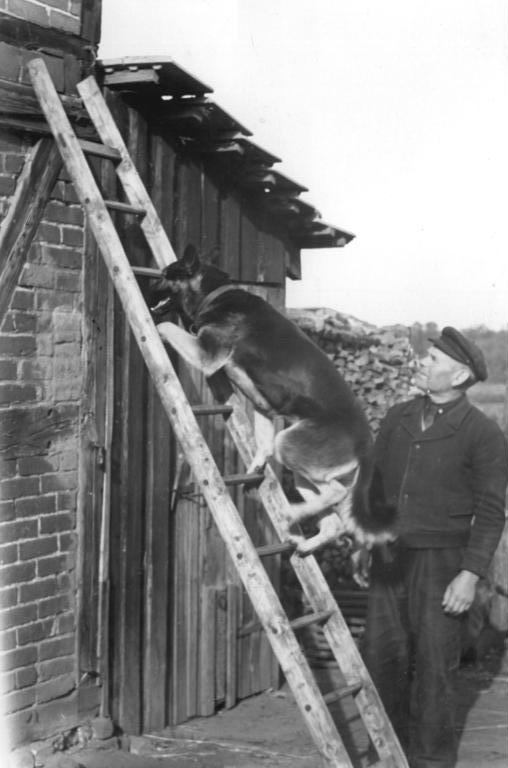
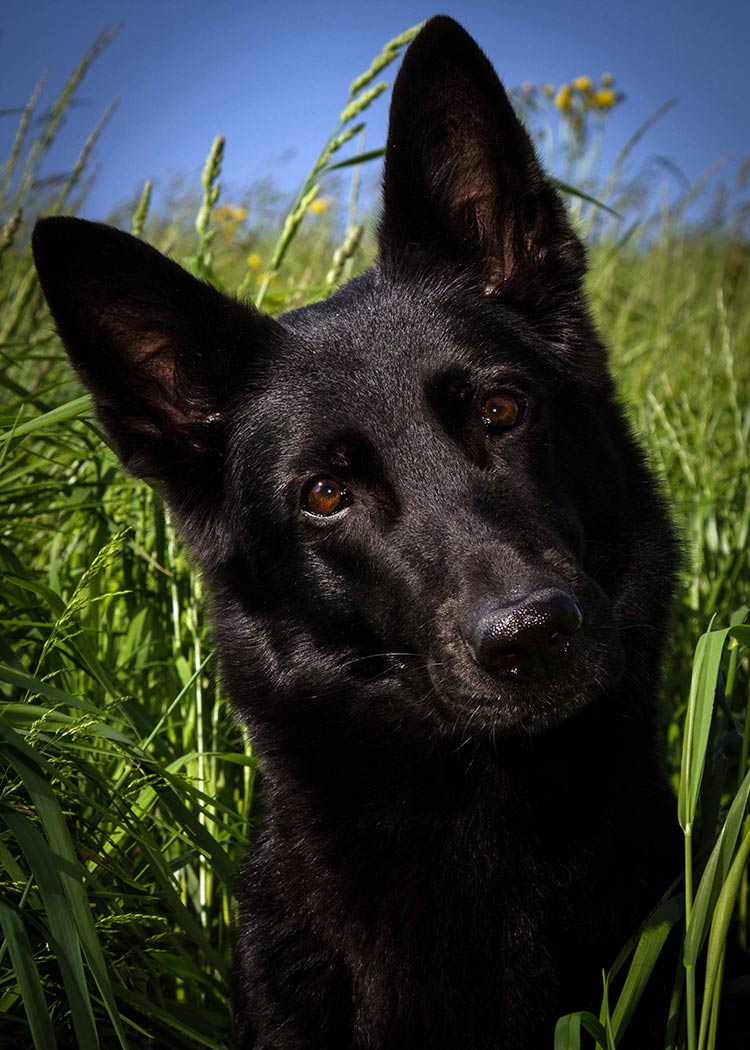
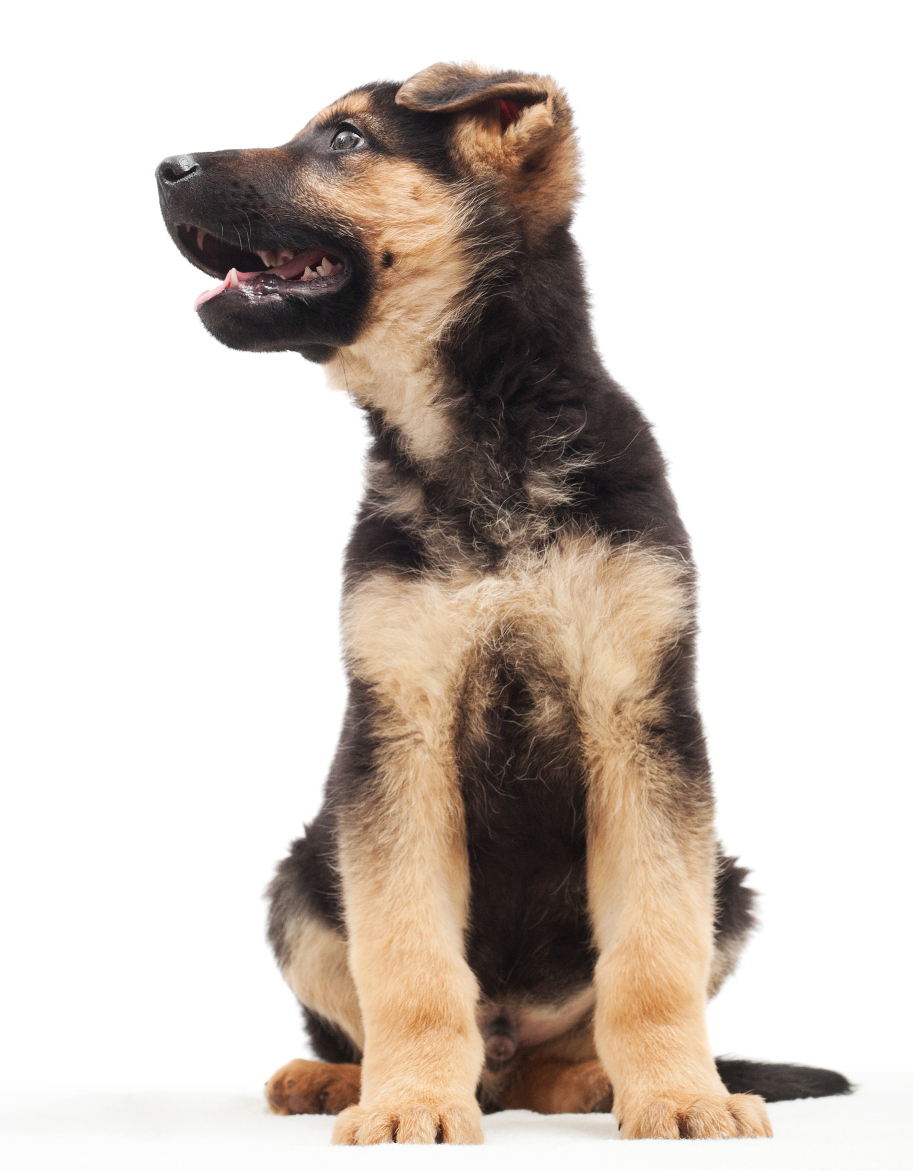
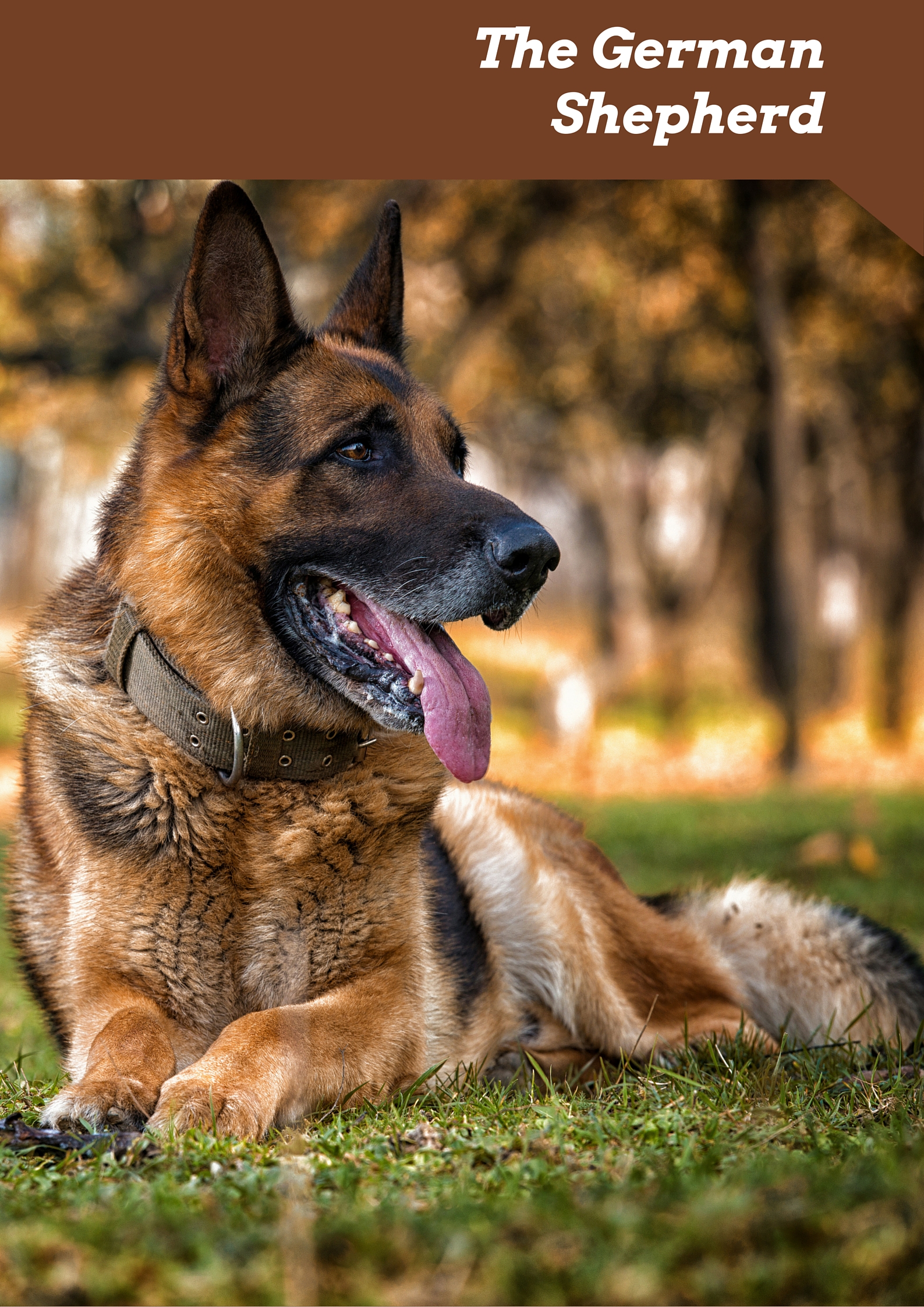
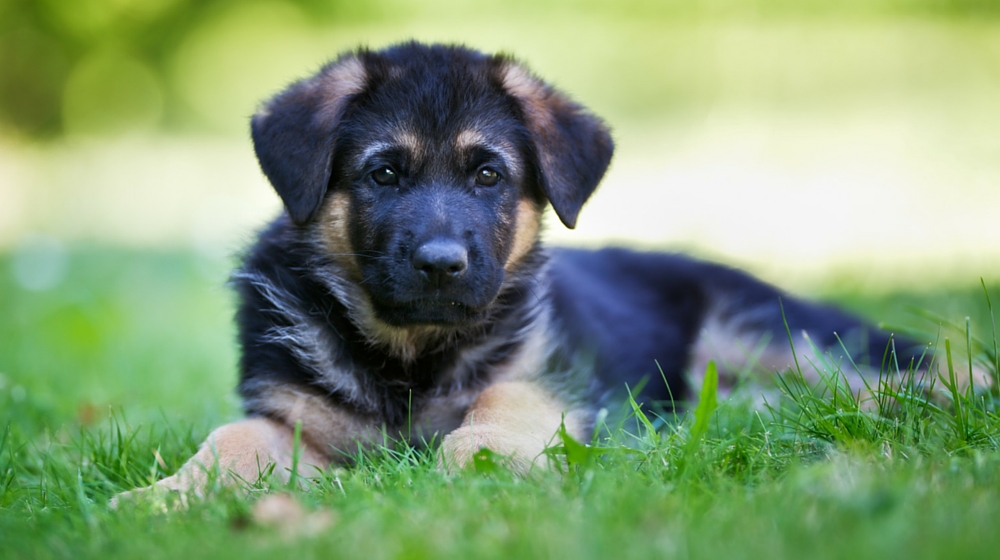
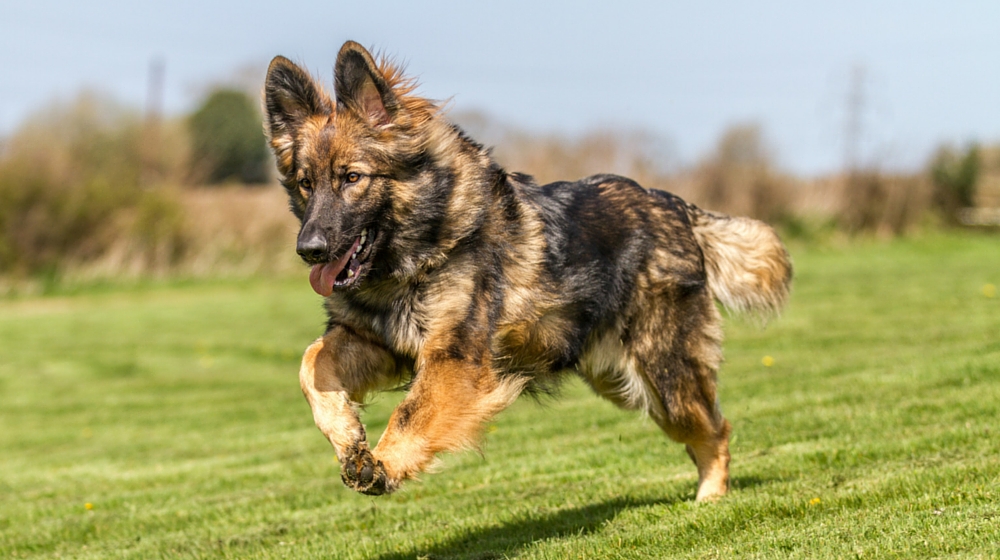
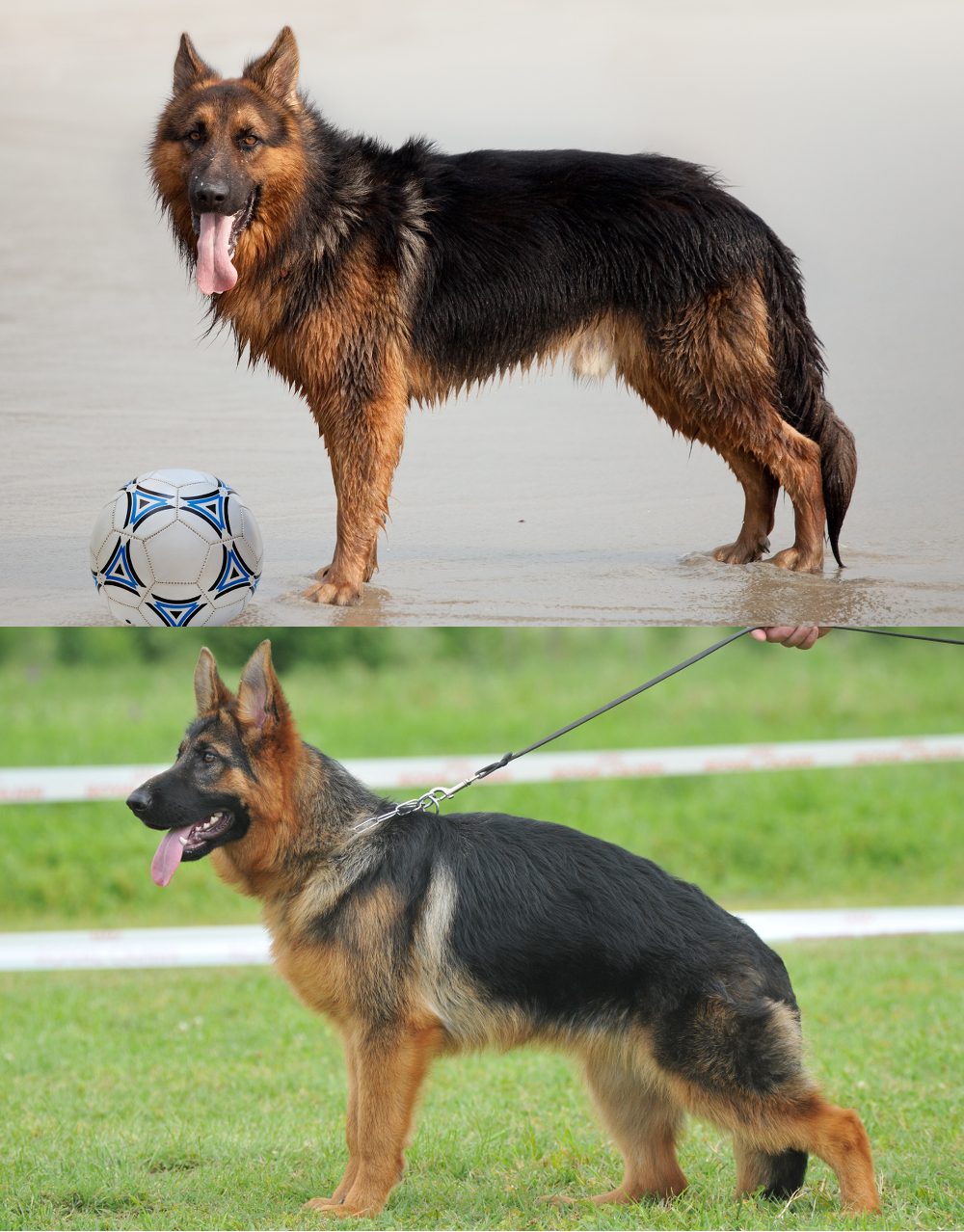

Theresa Taylor says
I am looking for a puppy for my grown sons birthday. However I do not have much money. We are a family who loves dogs. My sons want the dog on his 30th birthday in April. I have 500 only for this pup can you help me out.
Tracey says
FOR GERMAN SHEPHERD RESCUES IN LOS ANGELES, you forgot about WESTSIDE GERMAN SHEPHERD RESCUE. They are truly devoted to rescuing the breeds include paying for surgeries on behalf of new owners. Which I Thought was generous. I adopted 2 of their dogs, which were very healthy considering their past! The 2 dogs only needed training!
Please list Westside LA rescue on your list!!!
Victoria says
We have a problem!!!!!! We bought an expensive, purebred German Shepard female 1 1/2
yrs ago. We called her Deja Vu in memory of my Nyah who died a horrible death of internal
cancer. I mourned for over 2 yrs & finally my husband couldn’t take it anymore & wanted me
to get another German Shepard guard dog (I’m alone a lot since my husband is a trucker).
The lady we purchased Deja from is a well known breeder-mostly of white GSD’s. We only
had 2 to choose from in the traditional type since the litter was 6 white & 2 reg. pups, 1 male&1 female. We like females so that’s the one we bought. VERY EXPENSIVE!!! I would have been better off getting one at the pound, but my husband didn’t want to pay $130.00-but he’ll spend over $1000.00 to get this one-GO FIGURE? Anyway it’s been a disaster!! She was extremely distructive & never shows signs of protectiveness or who she excepted as her master, which was suppose to be me. She listens to no one & if left off of the leash takes off-we’re on 10 acres, but she eventually comes home. I was going to breed her but I don’t think that’s a good idea since I found out recently that she is 1 out of 3 from different litters that have these same tendencies, we were told it is a receive gene from the white purebred male from Oregon. My husband thinks we should change her
name & maybe that would help. We went through a similar situation with a male Arabian horse named Rascal now Fabian & it worked.
Any suggestions out there would be helpful.
Thank you: Victoria
Eden says
Could you explain it to me in a shorter version please then maybe I can help you?
JD says
Eden,
Sounds like Victoria resents how much she paid for her dog; wants dog to love her and be a little protective — not destructive, consider her as “master” and will want to stay at home and not run away. Oh, maybe sync up with the spouse. Sounds like nice family. Sorry to hear of Victoria’s loss.
Just noticed how old this thread is. Well, offering this up in case it might still be helpful.
pam poole says
Hi . This Degenerative Myelopathy, is it mandatory for a breeder to have tested the dogs their breeding before breeding.??
Eliasu says
I have a female German Pit bull which i cross with a male pure GSD breed.Am please like to know what breed are the puppies going be.mix or pure
Lucy says
Hi Eliasu, If you cross two different breeds of dog together then the puppies will by definition by mixed breed. Pure bred puppies have two parents of the same breed. I hope this helps.
Dave Jenkins says
Yes, the characteristic of the German Shepherd breed of being aloof with strangers further enhances their ability and appropriateness as a guard, police or military dog. The German Shepherd breed needs a lot of stimulation and training is very important from a young age, as you say. An absolutely fantastic breed of dog, but are better suited to people with dog experience of someone who is able and willing to give the dog the time, attention and care that they need in order to raise them properly, in which case, they can be one of the best dog breeds you could ever own.
Really great article, I like your site also
shrinti says
Stunning ?
amin says
To good